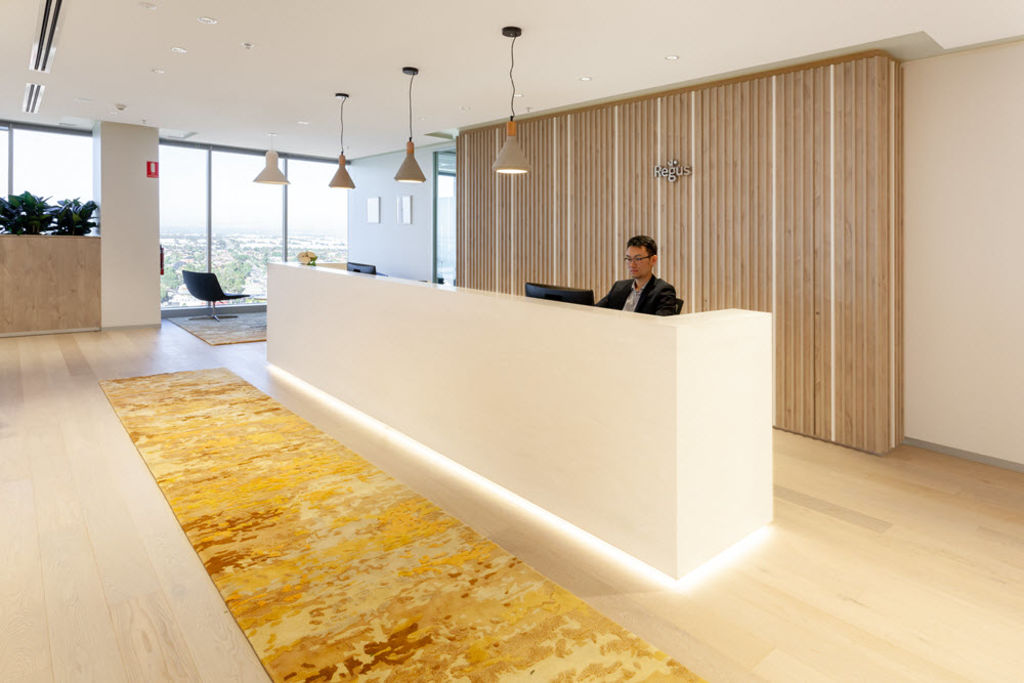
Why more businesses are choosing coworking spaces over traditional offices
Sponsored content
With traditional business models undergoing rapid evolution, it’s perhaps no surprise that the physical environment in which many organisations operate is also undergoing a radical change.
Enter the rise of the coworking space – specialist open-plan areas in which a range of different businesses work side by side. Especially popular with start-ups and small companies, coworking spaces are becoming increasingly prevalent due to the potential they offer for networking, idea sharing and collaboration.
Then there’s the cost saving. Indeed, with a recent report by global co-workplace giant Regus stating that more than half of employees globally now work externally to their main office for 2.5 days a week or more, the financial benefits of avoiding exclusive office space rent are significant.
“Coworking spaces are something that are here to stay,” says Dr Christhina Candido, a senior lecturer from the University of Sydney’s School of Architecture, Design and Planning.
“For some professionals it does make sense, with the key benefit being the opportunity for different professionals to work together from the same space – something which wouldn’t really otherwise happen. It suits businesses that really depend on each other so, for example, an environmental design firm working side by side with architects.
“But seeing people working together who normally wouldn’t be can also be quite interesting. There are unexpected positive things that may actually emerge. And because the costs are shared, it’s more affordable.”
John Cooksey, director of Melbourne-based HR consultancy Affinity People, agrees, adding that coworking spaces can have strong universal appeal. “More and more, coworking in Australia is becoming a reality for single operators right through to companies of 20 to 25 people,” he says.
“It’s a model that provides a lot of benefits. For example, it’s a very effective way to start or run a small business because the overheads are generally covered by the workspace. It’s a bit like renting an apartment – you don’t pay for the things that break, and you’re not responsible for upgrading the technology.”
Cooksey adds that these spaces provide a far nicer start-up environment than typical garages, home studies or kitchen tables.
“Because of this, I think there’s a productivity gain due to improved self-perception, and I think that also translates well into gaining customers,” he says. “Coworking also provides social networking opportunities and probably a better chance to connect with people you might be able to collaborate with commercially.”
According to Damien Sheehan, country head of major coworking space provider IWG Australia, the demand for cowork locales is growing internationally. IWG offshoot Regus currently operates 82 coworking centres across Australia, including recently opened locations in Sydney’s World Square, Melbourne, Dandenong and Canberra.
“Some of the latest research says that by 2030, 30 per cent of totally available commercial workspace will be co-shared, so it’s fair to say we’re at the beginning of a workspace revolution,” he says. “While these types of spaces have been around for 30 years, it’s now becoming the norm. It will become so mainstream.”
Sheehan says coworking spaces enable companies to overcome uncertainty due to digitisation and disruption by offering the ability to quickly adapt to required workforce sizes.
And with many professionals now favouring companies that offer stimulating cowork arrangements, he adds that the practice has become a key player in the war for workplace talent.
“In particular, new-age workers love to be engaged with dozens of other companies on the same floor where they can build relationships, engage in discussions in the business lounge or cafeteria, and attend organised end-of-week or end-of-month events,” says Sheehan.
“Typically, as those relationships grow, it leads to business relationships and of course further opportunities.”
This article has been created in partnership with Regus.










